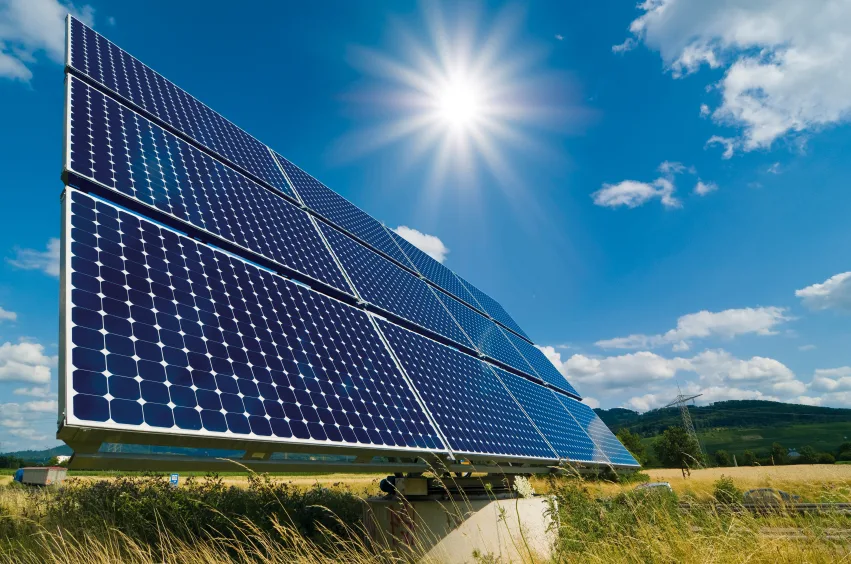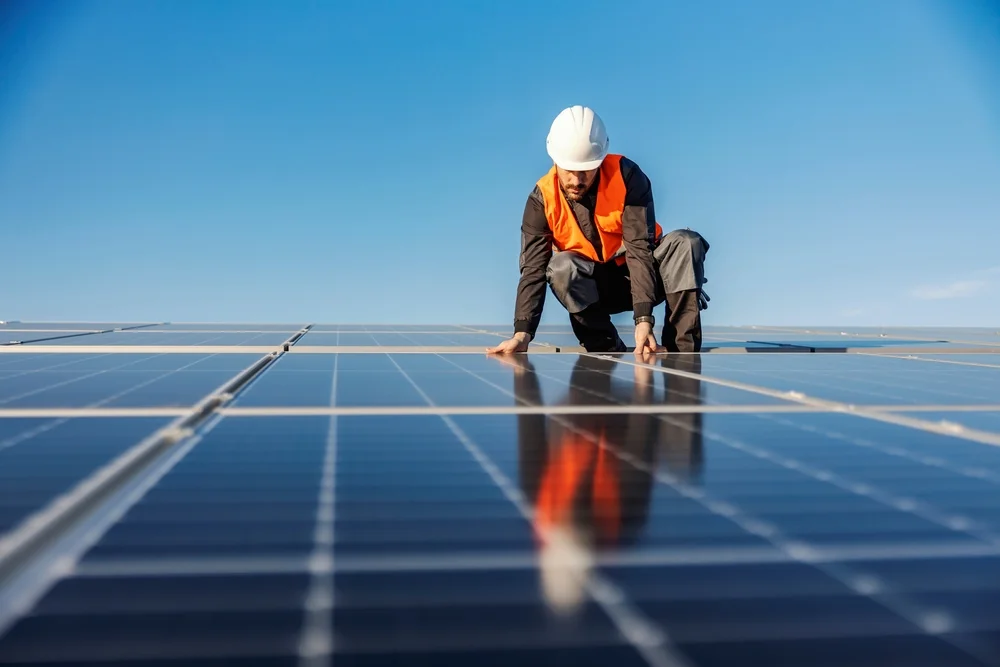Wondering if making the switch to solar energy is a good investment? You’re not alone. With rising energy costs and increasing environmental concerns, many people are considering going solar. But before you take the leap, it’s important to understand all the factors that go into determining whether solar is a smart financial move for you and your family.
In this article, we’ll explore the ins and outs of investing in solar power. From the benefits and potential savings to potential drawbacks and things to consider, we’ll cover everything you need to know before making this eco-friendly switch. So let’s dive in and find out if solar is truly worth your investment!
So, Is solar a good investment??
The answer to this question ultimately depends on your individual circumstances and goals. Solar energy can be a great investment for some people, but it may not be the best choice for everyone.
First, you should consider the upfront cost of installing solar panels. While prices have decreased in recent years, it is still a significant investment that may take several years to pay off through savings on your electricity bill.
Next, think about how long you plan to stay in your current home. If you are planning to move within the next few years, investing in solar may not make financial sense as it typically takes 5-7 years or more to see a return on investment.
Additionally, consider the location and climate of where you live. Solar panels work best in areas with plenty of sunlight year-round. If you live in an area with frequent cloudy days or harsh winters, your system may not produce enough energy to offset the initial cost.
On the other hand, if you plan on staying in your home for many years and live in a sunny region with high electricity rates, switching to solar could potentially save you thousands of dollars over time.
It’s also important to research available incentives and rebates offered by federal and state governments for installing solar panels. These can significantly reduce the upfront cost and make solar even more financially beneficial.
Ultimately, making the switch to solar requires careful consideration of various factors before determining if it is a good investment for you personally. It’s always helpful to consult with professionals who can provide personalized advice based on your specific situation.
Understanding the Costs of Solar Energy Systems
When considering solar energy systems, many people are curious about the costs involved. At first glance, it might seem like a big investment to install solar panels on your roof. However, it’s essential to look beyond the initial price tag. The overall expenses can include equipment like panels, inverters, and batteries for storage. You may also need to factor in installation fees and permits required by local authorities. Sometimes there are hidden costs too—like maintenance or repairs that might come up after several years of use.
Despite these expenses upfront, solar energy systems often save you money over time. By generating your own electricity from sunlight, you can reduce or even eliminate monthly utility bills! Many places offer tax credits or rebates that help offset the cost further. Additionally, think about how long you’ll live in your home; if you’re planning to stay for several years, those savings can really add up!
As you weigh these factors carefully and explore financing options available through various programs or lenders,
- you’ll surely find a way to make solar an accessible choice.
In essence, while understanding all associated costs is vital when deciding on solar energy systems, the potential benefits often outweigh them with thoughtful planning.
Analyzing the Potential Savings from Switching to Solar Energy
When considering a shift to solar energy, many people find themselves curious about the potential savings it offers. Imagine harnessing sunlight—an abundant and free resource—to power your home. By installing solar panels, you can significantly reduce or even eliminate your electricity bills over time. The initial investment may seem daunting, but various financial incentives such as tax credits and rebates can ease this burden. Additionally, after the payback period is complete (which typically ranges from five to fifteen years), homeowners start to enjoy substantial long-term savings that grow year after year due to minimal maintenance costs.
Moreover, switching to solar energy not only benefits individual households financially but also contributes positively to the environment. Solar energy dramatically lowers carbon footprints by reducing reliance on fossil fuels. Consider these key points:
- Increased property value
- Potential net metering credits for excess energy produced
- Protection against rising utility rates
These factors combined create a compelling case for making the switch. As more families embrace sustainable practices, they pave the way for cleaner air and a healthier planet while enjoying their newfound financial freedom through lower energy costs and increased independence from traditional utility companies.
Read also: get paid to test fishing products

Exploring Tax Incentives and Rebates for Solar Investments
Investing in solar energy comes with a range of exciting tax incentives and rebates that can help lighten the financial load. These incentives are designed to encourage more people to harness the sun’s power, making it easier to go green while also saving green. For instance, many states offer credits that reduce your taxable income based on the cost of your solar system. This means if you spend money on solar panels, part of that expense can actually come back to you when it’s time to pay taxes! Additionally, federal programs often provide direct cash rebates or grants for those who install solar technologies, making the initial investment feel less daunting.
Moreover, these benefits aren’t just limited to homeowners; businesses can take advantage too! By adopting renewable energy solutions like solar panels, companies might qualify for significant deductions and receive financial support through various federal and state initiatives. Local governments sometimes sweeten the deal even further by offering property tax exemptions or sales tax waivers on equipment purchases. All in all, diving into these opportunities not only makes economic sense but also contributes to a healthier planet and reduced reliance on traditional energy sources. With so many options available, now is an excellent time for individuals and businesses alike to explore their possibilities in this vibrant field!
Solar Energy Investment: Considering Environmental Impact and Sustainability
Investing in solar energy is like planting a seed for the future of our planet. It’s not just about harnessing sunlight; it’s also about making choices that protect our environment and promote sustainability. When we shift towards solar power, we significantly reduce greenhouse gas emissions, which are known culprits in climate change. Traditional energy sources often rely on fossil fuels that release harmful pollutants into the air. In contrast, solar panels generate electricity without emitting these gases, leading to cleaner air and healthier communities. As more individuals and businesses invest in this renewable source, they contribute to a collective movement toward a greener world.
Moreover, embracing solar energy brings significant economic benefits alongside its environmental advantages. By investing in solar technology, people can lower their electric bills while enhancing property values. The solar industry also creates numerous job opportunities—from manufacturing to installation—supporting local economies and providing sustainable employment options. Furthermore, utilizing abundant sunlight means less reliance on imported fuels, promoting energy independence for many regions around the globe. With each new installation of solar panels comes hope for innovation and progress toward achieving long-term goals related to sustainability: protecting nature while enjoying its benefits responsibly.
In short, choosing solar is not merely an investment in technology; it is an investment in a brighter future for everyone!
You may also like: What George Soros thinks about joint ventures
Making an Informed Decision about Solar Energy Investment
When considering an investment in solar energy, it’s essential to dig deeper than just the surface benefits. Solar panels can dramatically reduce electricity bills and lower your carbon footprint, but there are various factors that play a vital role in making this choice. First, assess your home’s location—sunlight exposure is crucial. Homes with ample sunlight throughout the day will see greater returns on their solar investments compared to those shaded by trees or buildings. Moreover, research available incentives; many states offer tax credits and rebates that significantly decrease initial costs.
Additionally, explore different financing options tailored for solar energy systems. You might come across choices like leasing versus purchasing outright or even power purchase agreements (PPAs). Each option has its pros and cons depending on financial goals and how long you plan to stay at your current residence. Consider these points:
- The potential increase in property value.
- Maintenance costs over time.
- The longevity of the equipment.
Overall, taking time to analyze these aspects ensures you’re not only investing wisely but also paving the way for sustainable living practices that benefit both your wallet and our planet’s health!

